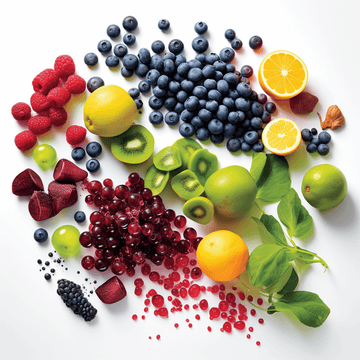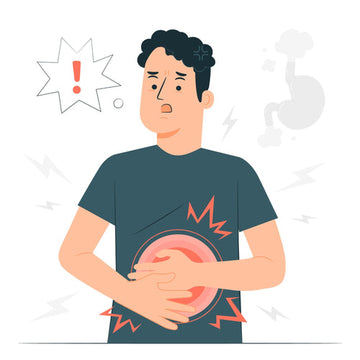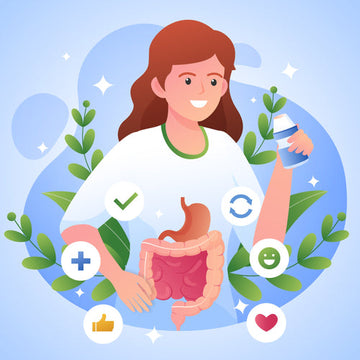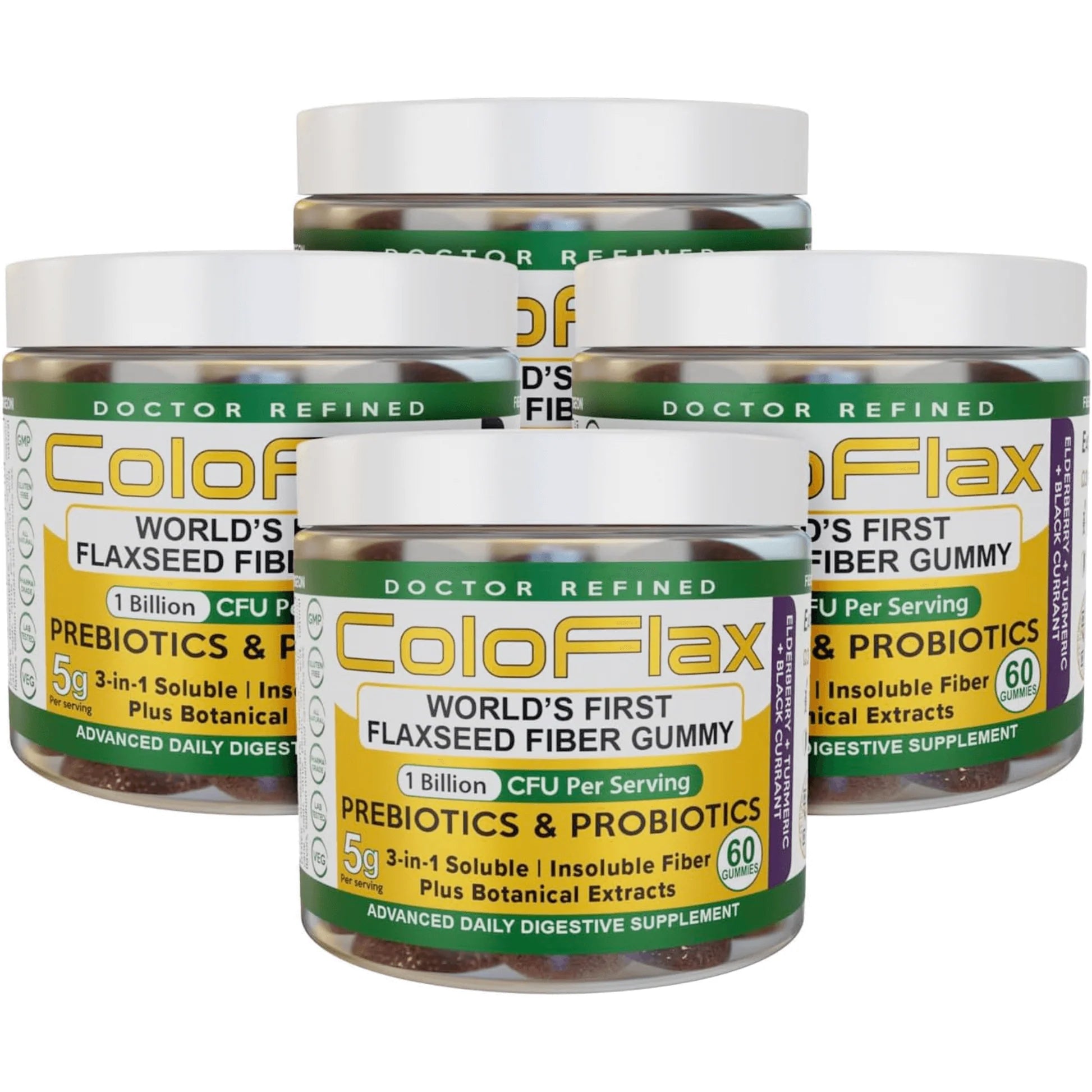If you read any guide to the benefits of a certain fruit, vegetable, herb, spice, or even a type of tea, you’ll see multiple mentions of antioxidants. These miraculous compounds are abundant in nature and essential for optimum health. But what are they, how do they work, what kind of benefits do they provide, and which foods have the highest concentration of antioxidants?
Let’s take a look.
What Are Antioxidants?
To understand antioxidants you need to know about free radicals.
Free radicals are chemicals produced as a natural byproduct of converting food into energy. They are also produced following exposure to environmental toxins, including air pollution and cigarette smoke.
They come in many shapes and sizes and they can damage the body’s cells and increase the risk of chronic disease.
Antioxidants are a weapon that the body uses in the right against these destructive compounds. Your body produces its own antioxidant defense, but they are also found in food, and they are at their highest concentration in fruits, vegetables, herbs, and spices.
What Are the Benefits of Antioxidants?
You need antioxidants. In fact, all living things rely on them. One of the reasons that plant-based diets are so healthy and associated with improved health outcomes is that they are very high in antioxidants.
As for the specific health benefits that they provide, there are numerous, the most notable of which are listed below:
They Could Support Heart Health
We know that a diet rich in antioxidant-containing foods is good for heart health, but it’s hard to say with absolute confidence if those effects are influenced by the antioxidants themselves.
Usually, scientific studies are conducted using high-strength extracts, as they are easy to isolate and test. The problem with antioxidants is that they don’t seem to work as well when they are extracted and consumed in tablet form.
A study conducted in 2017 noted the following:
“Properly planned vegetarian diets are healthful and effective for weight and glycemic control, and provide metabolic and cardiovascular benefits, including reversing atherosclerosis and decreasing blood lipids and blood pressure.”(1)
Atherosclerosis is a condition characterized by a hardening of the arteries. It is caused by plaque buildup and is impacted by diet and lifestyle choices.
A meta-analysis conducted in 2021 drew similar conclusions, noting that, “Participants following a vegetarian diet had a non-significant decrease in cardiovascular mortality compared with regular meat eaters.”(2)
Fiber, vitamins, and minerals all combine with antioxidants to support your heart health and could add years to your life. Speaking of which…
They Could Prolong Your Life
Studies have repeatedly found that diets rich in antioxidants can contribute to a greater life expectancy. In one case, an average increase of 11 to 13 years was noted. And don’t worry if you’re in your twilight years and only just learning about the benefits of antioxidants. The same research noted an average increase of 8 years in people who switch to a plant-based diet in their 60s.(3)
This could also be why countries like Japan and Hong Kong are top of the life expectancy leaderboard while the USA only just scrapes into the top 50.(4)
Americans are advised to eat at least 5 portions of fruit and vegetables a day, and many struggle to meet those targets. In many other countries, the recommendation is for 10 portions, and in Japan, it’s even higher.
US health authorities know that plant-based diets are healthy and that 10 portions are a lot better than 5, but they’re not confident that Americans can meet that target and so they set a more reasonable goal.
Unsurprisingly, Italy and Spain are also in the top 10 for life expectancies, which is evidence of the efficacy of the Mediterranean diet. Greece is even more noteworthy, as it sits at number 19, with an average life expectancy that’s 3 years higher than the US. This is despite the fact that Greece has the second-highest number of smokers in Europe and the 9th highest in the world.
The Greek diet is doing a lot of heavy lifting for the residents’ life expectancies.(5)
They Support Healthy Brain Function
By reducing oxidative stress in the brain, antioxidants could improve cognition, making those thoughts flow easier and improving focus.(6)
A 2016 analysis noted that “dietary vitamin E intake was positively associated with performance in domains of verbal memory… verbal fluency…and psychomotor speed.”
These amazing compounds could be the reason that foods like blueberries are so strongly associated with improved cognition. Blueberries are rich in a type of antioxidant flavonoid known as anthocyanins, and it’s from these compounds that the berries get many of their benefits.(7)
Studies conducted on animals suggest that supplementing with berries can support memory function and fight against age-related cognitive decline.(8)
A study on the effects of blueberries and strawberries achieved similar results in humans. Researchers administered a food frequency questionnaire every 4 years to participants in the Nurses' Health Study. From 1995 to 2001, they began measuring cognitive function in over 16,000 participants aged 70 and over.
They found that those consuming more blueberries and strawberries experienced a slower rate of cognitive decline. The results indicated that consuming these berries on a regular basis could reduce cognitive age by up to 2.5 years.(9)
You don’t have to wait until your 70s to reap the benefits, either.
Researchers from the King’s College London and the University of Reading gave freeze-dried blueberry powder to participants every day for 12 weeks. At the end of the study period, they recorded improved cardiovascular health and also noted an 8.5% increase in memory performance.(10)
They May Support Eye Health
There have been a number of studies looking at the effects of antioxidant consumption on aging, including an eye condition known as age-related macular degeneration. It’s a condition that could be improved by adequate consumption of lutein and zeaxanthin, two carotenoids found in leafy green vegetables.
There are several dozen carotenoids in the human body, but these are the only two found in the retina and lens. They have an antioxidant effect and it’s thought that they may limit retinal damage by absorbing blue light and eliminating free radicals.
It is thought that most men and women don’t consume enough of these antioxidants to feel the benefits, so if you’re worried about vision degeneration later in life, think about adding more of the following foods to your diet.(11)
- Kale
- Collard Greens
- Spinach
- Egg Yolks
- Einkorn
- Durum Wheat
- Brussel Sprouts
- Broccoli
- Zucchini
- Corn
- Peas
They Could Help With Disease Prevention
Free radicals are a leading contributor to disease and may play a role in the development of many chronic conditions. It has been suggested, therefore, that a diet rich in antioxidants can reduce the risk of these diseases.
This could be one of the reasons why antioxidant-rich diets are closely correlated with longer life expectancies.
There are a few caveats to this, though. Firstly, it doesn’t mean that an antioxidant tablet will make you immortal. They need to be consumed in whole food form, and at best, they could add a few years to your life. Secondly, while they might assume a minor preventative role, there is nothing to suggest that they can treat any illness, nor will they provide 100% protection guarantee.
It's necessary to add these caveats because while it’s very important to eat a balanced diet rich in fiber, nutrients, and antioxidants, it’s not the only factor. There are many elements to consider, including regular exercise, smoking, alcohol/drug consumption, stress, sleep patterns, and genetics.
What Foods Have the Most Antioxidants?
Although antioxidants are potent, they make up a very small percentage of a food’s weight. They are often measured in millimoles (MMOL), which is equivalent to a thousandth of a mole.
Take a look at the table below for a list of common foodstuffs with the highest levels of these compounds.
|
Food |
MMOL Antioxidants (7oz Serving) |
|
Mint |
285.2 MMOL |
|
Cinnamon |
279.8 MMOL |
|
Cloves |
251.2 MMOL |
|
Allspice |
203 MMOL |
|
Oregano |
145.6 MMOL |
|
Basil |
56.2 MMOL |
|
Plums |
6.4 MMOL |
|
Pomegranate |
18 MMOL |
|
Blackberries |
11.5 MMOL |
|
Blueberries |
18.4 MMOL |
|
Goji Berries |
8.6 MMOL |
|
Raspberries |
8 MMOL |
|
Strawberries |
4.2 MMOL |
|
Cranberries |
6.6 MMOL |
|
Artichokes |
9.4 MMOL |
|
Kale |
5.4 MMOL |
|
Cauliflower |
7 MMOL |
|
Red Cabbage |
4.4 MMOL |
|
Orange Bell Pepper |
3.8 MMOL |
|
Beets |
2.4 MMOL |
|
Sundried Tomatoes |
2.6 MMOL |
|
Walnuts |
43.8 MMOL |
|
Pecans |
17 MMOL |
|
Pistachios |
9.8 MMOL |
|
Chestnuts |
9.4 MMOL |
|
Sesame Seeds |
2.4 MMOL |
|
Flaxseeds |
2.2 MMOL |
|
Beans |
4.4 MMOL |
|
Dark Chocolate |
30 MMOL |
|
Coffee |
5 MMOL |
|
Green Tea |
3 MMOL |
|
Spinach |
2.8 MMOL |
Can’t You Just Take Antioxidant Tablets?
As noted above, antioxidants are incredibly important for optimal health and well-being. We know that for a fact, and there is a wealth of research out there pointing to the amazing benefits provided by these compounds. We also know that extracts of many beneficial compounds can provide just as many benefits as the whole food version—as is the case with curcumin, an extract of turmeric.
So, why aren’t we all taking antioxidant tablets?
Well, therein lies the problem. Research suggests that antioxidant extracts don’t have any noticeable effect on health outcomes, and there have also been studies suggesting that high doses of certain antioxidants—including beta-carotene and vitamin E—can increase the risk of illness.
The same isn’t true for those who eat a plant-based diet, and there’s nothing to suggest that eating lots of natural antioxidants will produce the same adverse effects as taking antioxidant pills.
We don’t know for sure why antioxidants have these effects, but what we can say is that a balanced diet rich in fresh fruit, vegetables, and other plant-based foods is very good for your health.
Which Antioxidants Should You Take?
There are a wide assortment of antioxidants out there. They range from abundantly available vitamins, such as vitamins C and E, to lycopene, which is typically found in red-colored fruits and vegetables.
They all play a role and they are all important, but you don’t need to worry about getting specific amounts of each one. The easiest way to get your fill of antioxidants is to eat a balanced diet full of different colored fruits and vegetables. Oftentimes, the pigments responsible for those bright and distinctive colors are also responsible for the unique antioxidant effects.
For instance, lycopene and anthocyanin are red pigments, with the former found in tomatoes and the latter in more blue/purple-colored foods (including vegetables). Orange pigments—as seen in carrots—are produced by beta-carotene.
As long as you’re eating a rainbow of whole foods (strictly fruits and vegetables; Skittles and Mountain Dew don’t count) then you’re doing enough.
References
- https://www.ncbi.nlm.nih.gov/pmc/articles/PMC5579641/
- https://www.ncbi.nlm.nih.gov/pmc/articles/PMC8604150/
- https://journals.plos.org/plosmedicine/article?id=10.1371/journal.pmed.1003889
- https://www.worldometers.info/demographics/life-expectancy/
- https://worldpopulationreview.com/country-rankings/smoking-rates-by-country
- https://www.ncbi.nlm.nih.gov/pmc/articles/PMC4597309
- https://pubmed.ncbi.nlm.nih.gov/22175691/
- https://pubmed.ncbi.nlm.nih.gov/19057194/
- https://onlinelibrary.wiley.com/doi/abs/10.1002/ana.23594
- https://www.reading.ac.uk/news/2023/Research-News/Daily-blueberries-for-cognitive-and-vascular-health-in-older-people
- https://www.ncbi.nlm.nih.gov/pmc/articles/PMC3693724/






